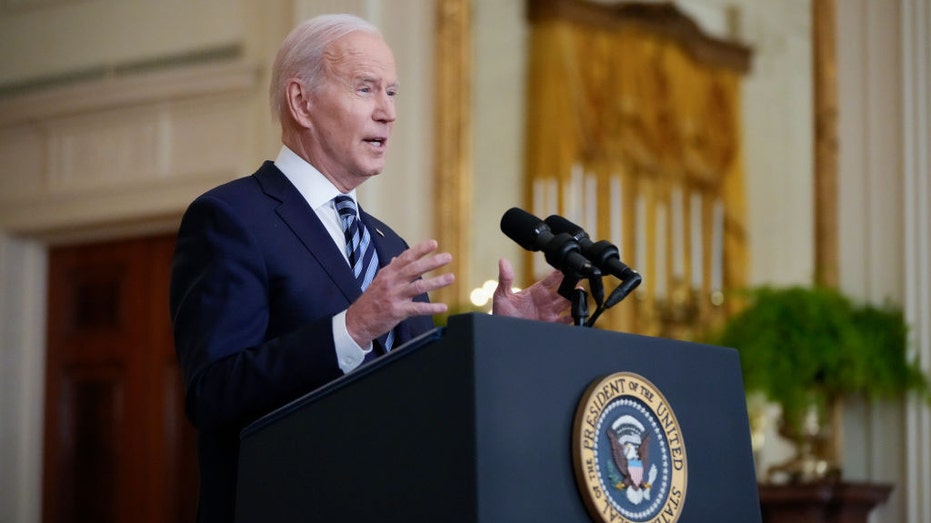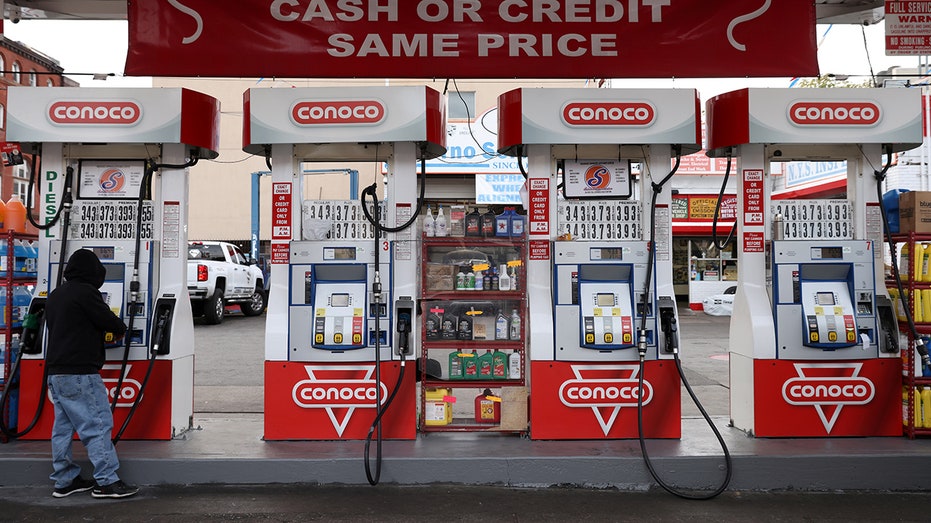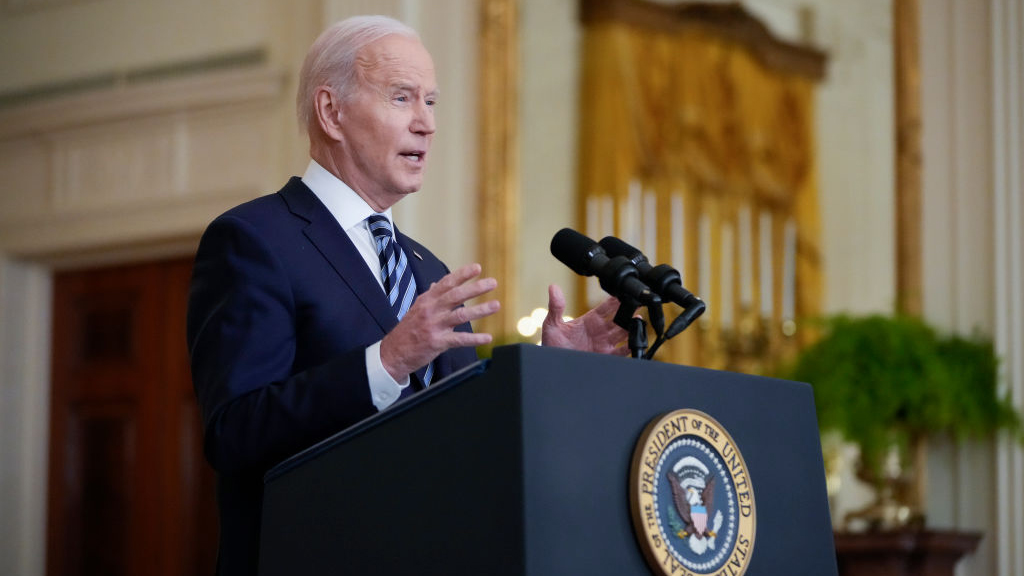Ukraine crisis: Biden eyeing oil release from global reserve as prices surge
Oil prices topped $105 for the first time since 2014 on Thursday
Biden tells Fox News’ Peter Doocy ‘I didn’t underestimate’ Putin
President Biden discusses the impact of economic sanctions on Russia and whether he underestimated Putin.
President Biden said Thursday the U.S. is working with other countries on a coordinated oil release from the global petroleum reserve in the coming days in a bid to tamp down rising gasoline prices.
Brent Crude, the global benchmark, shot above $105 a barrel for the first time since 2014 on Thursday, hours after Russia launched a broad offensive against Ukraine, hitting cities and bases with airstrikes and shelling.

President Joe Biden delivers remarks about Russia's "unprovoked and unjustified" military invasion of neighboring Ukraine in the East Room of the White House. (Drew Angerer/Getty Images / Getty Images)
"We are actively working with countries around the world to elevate collective release from the strategic petroleum reserves of major energy-consuming countries," Biden said in remarks from the White House. "The United States will release additional barrels of oil as conditions warrant."
LIVE UPDATES: WORLD REACTS AS PUTIN ORDERS TROOPS INTO UKRAINE
The U.S. is expected to release between 30 million and 35 million barrels, which would be carried out over time, according to Politico, citing a person familiar with the matter. The administration is trying to coordinate the release with foreign governments, including those in China and Japan.
It would mark the second time of his presidency that Biden has released crude from the petroleum reserves: In November, he ordered a record-setting 50 million barrels of oil released from the nation's Strategic Petroleum Reserve in hopes of lowering gas prices.

A local resident prays in a Christian Orthodox church on Feb. 24, 2022 in Kyiv, Ukraine. Overnight, Russia began a large-scale attack on Ukraine, with explosions reported in multiple cities and far outside the restive eastern regions held by Russian- (Pierre Crom/Getty Images / Getty Images)
Established after a 1973-74 oil embargo by Arab members of OPEC, the reserve has been used in several emergencies, including in 2005 after Hurricane Katrina made landfall and destroyed swaths of the Gulf of Mexico oil infrastructure. At the time, the Bush administration authorized the release of 20.8 million barrels of crude oil to U.S. producers.
RUSSIA SANCTIONED AFTER PUTIN RECOGNIZES REBEL-HELD PROVINCES IN UKRAINE
Proponents of releasing barrels from the emergency stockpile say that doing so would increase oil supplies and reduce prices at the pump, while also generating billions in revenue for the federal government. Still, critics say that releasing emergency supplies is a short-term fix to a problem and does not actually increase the country's oil-production capabilities.

Rows of gasoline pumps are seen at a Conoco gas station, a brand owned by Phillips 66, in Brooklyn, New York, Nov. 11, 2021. (Reuters/Andrew Kelly / Reuters)
Energy Secretary Jennifer Granholm has repeatedly suggested the White House could release additional crude as higher prices at the pump frustrate Americans and help drive Biden's approval ratings lower. A gallon of gas, on average, cost $3.54 nationwide on Thursday, according to AAA – up from $2.66 a year ago.
Biden acknowledged that the price spike has been "hard" for many U.S. households and that Americans are suffering as a result of more expensive gasoline. He pledged to do "everything in my power" to limit the pain that individuals are feeling at the gas pump.
"My administration is using every tool at its disposal to protect American families and businesses from rising prices at the gas pump," Biden said. "You know, we're taking active steps to bring down the costs. And American oil and gas companies should not exploit this moment to hike their prices to raise profits."





















